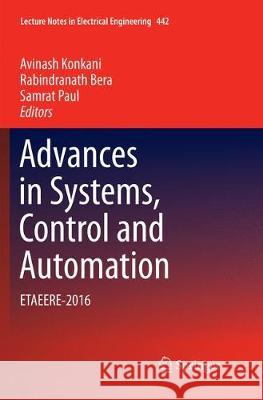Advances in Systems, Control and Automation: Etaeere-2016 » książka
topmenu
Advances in Systems, Control and Automation: Etaeere-2016
ISBN-13: 9789811352232 / Angielski / Miękka / 2018 / 740 str.
Kategorie:
Kategorie BISAC:
Wydawca:
Springer
Seria wydawnicza:
Język:
Angielski
ISBN-13:
9789811352232
Rok wydania:
2018
Wydanie:
Softcover Repri
Ilość stron:
740
Waga:
1.22 kg
Wymiary:
23.37 x 23.11 x 3.3
Oprawa:
Miękka
Wolumenów:
01











